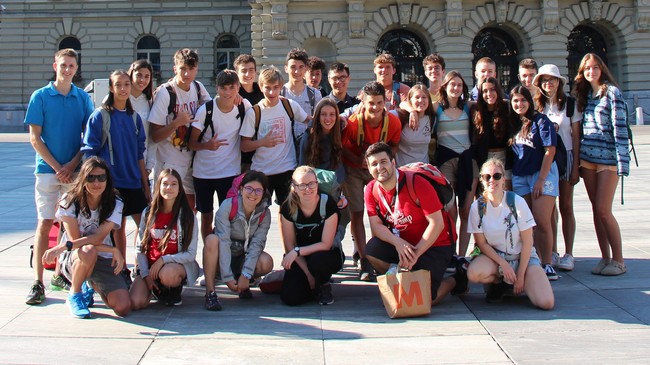
Swiss inflation rate falls to lowest level since start of Ukraine war

As energy and import costs stabilise, inflation in the Alpine nation is now largely driven by domestic price hikes in sectors like housing.
The headline year-on-year rate dropped to 2.2% in May, compared with 2.6% in April and 3.4% at the start of 2023, the Federal Statistical Office (FSO) said on MondayExternal link.
Meanwhile the so-called core gauge, which strips out volatile elements like energy and food, fell to 1.9% in May, down from 2.2% the previous month.
The price of domestic goods was 2.4% higher in May 2023 compared to a year before, while for imported goods the rate was 1.4%, the FSO said.
+ How the Swiss economy is shaping up for 2023
Month on month, overall prices increased by 0.3% in May, largely due to higher costs for housing rentals, package holidays and several food products. Air transport, holiday home accommodation, heating oil and diesel all produced a downward effect.
The Swiss National Bank (SNB), whose inflation ceiling is set at 2%, is meeting for its next quarterly interest-rate decision on June 22. Economists predict a further 25 basis-point hike from the current level of 1.5%.
However, receding price pressures have seen the SNB’s main concern shift from headline inflation to increases spreading through the economy.
SNB President Thomas Jordan said last week that the central bank cannot tolerate underlying consumer-price increases to stay above 2% for too long.
The central bank’s forecast sees headline inflation at or above its target’s ceiling of 2% through 2025, which signals further borrowing-cost increases. Still, Swiss consumer-price growth remains the slowest of all developed economies.

More
Inflation in Switzerland hits 30-year high

In compliance with the JTI standards
More: SWI swissinfo.ch certified by the Journalism Trust Initiative
















![The four-metre-long painting "Sonntag der Bergbauern" [Sunday of the Mountain Farmers, 1923-24/26] had to be removed by a crane from the German Chancellery in Berlin for the exhibition in Bern.](https://www.swissinfo.ch/content/wp-content/uploads/sites/13/2025/12/01_Pressebild_KirchnerxKirchner.jpg?ver=cb688ed5)














You can find an overview of ongoing debates with our journalists here . Please join us!
If you want to start a conversation about a topic raised in this article or want to report factual errors, email us at english@swissinfo.ch.